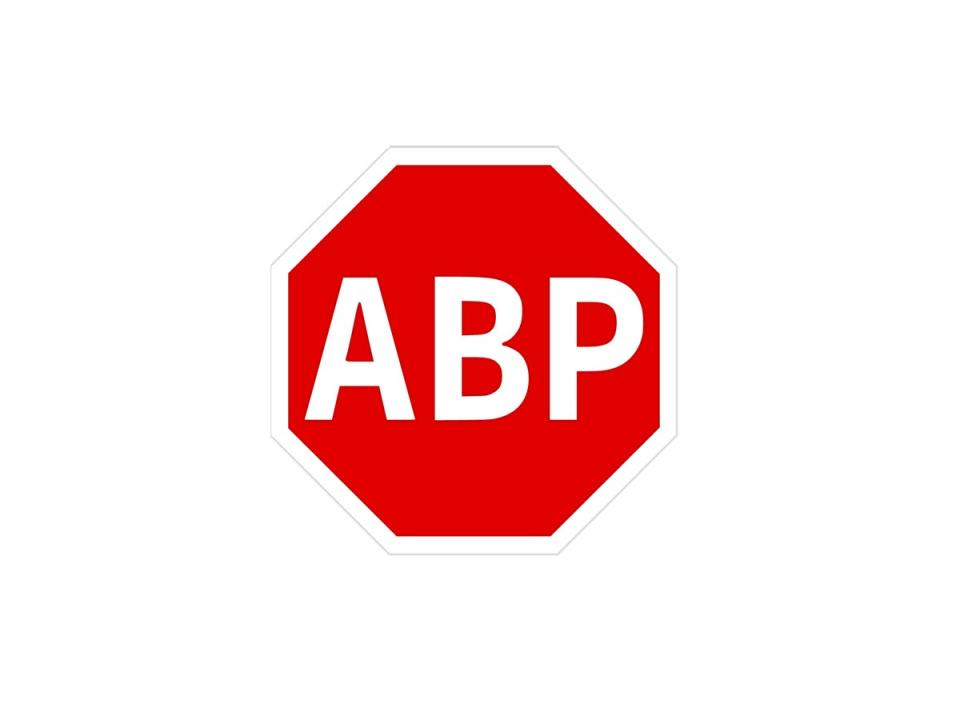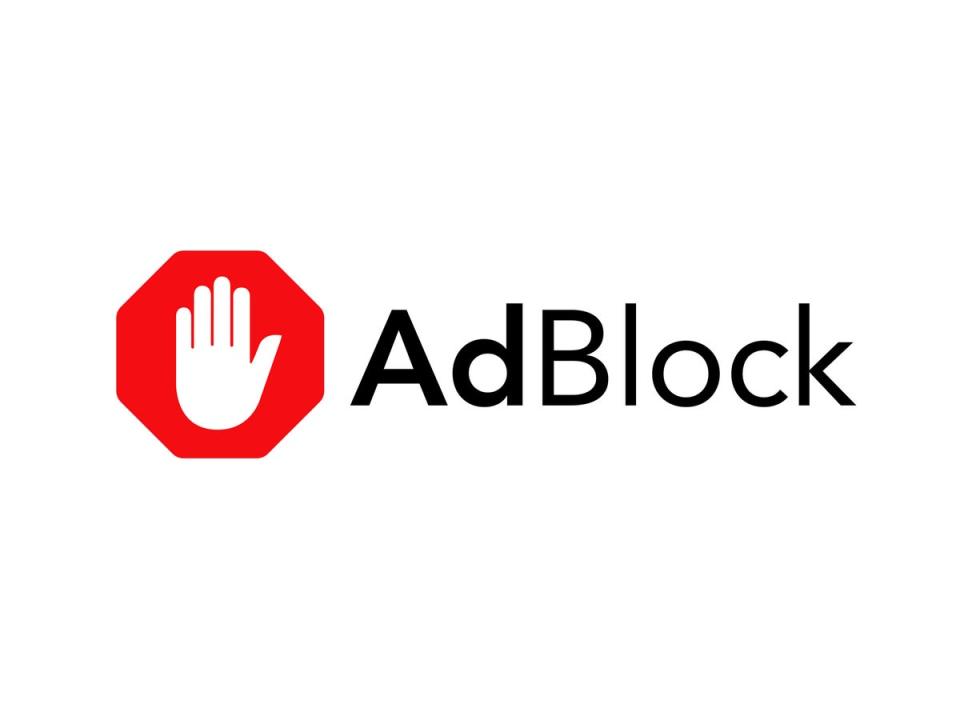9 best ad blockers to eradicate annoying pop-ups and protect your privacy online

The best ad blockers make using the internet more tolerable and more secure. They work by automatically removing intrusive ads in your web browser – and sometimes other notifications like cookie notices and newletter invitations too – so that nothing stands between you and the content you’re trying to view.
Depending on whether you browse the web on your phone or on a desktop computer, you might need to use a different type of ad blocker. The good news is that most are free, so to help you decide which is best we’ve rounded up the top adblocker apps for Android and iPhone, as well as ad blocking browser extensions for Chrome, Safari, Firefox and Edge.
In the most basic sense, ad blockers work by checking all of the content that appears in your web browser against a giant list of URLs known to host advertising, then simply not running the code required to display the advertising in your browser window. This allows your web browser to accept the useful parts of a website and filter out the rest.
Your web browser is already designed to block the very worst types of malicious advertising – like those spammy pop-up windows that plagued the early internet – but modern advertisers use more sophisticated techniques to get their ads in front of you. To eradicate these and other forms of digital advertising you need a dedicated blocker.
The most powerful ad blockers can remove YouTube video advertising and even scrub sponsored posts from your social media feed. You can also configure ad blockers to allow some non-intrusive advertising to appear – such as ads that don’t block any content or play any sound – or to whitelist websites you want to support. This means free sites can continue to make money and pay their staff.
Read more:
How we tested:
We tested these extensions on Chrome, Edge, Firefox and Safari, as well as iOS and Android mobile devices. We ran side by side tests using basic browser settings versus a separate window running the ad blocker. We paid particular attention to how each ad blocker deals with ad-heavy web pages, how they affect pageload times, and whether sites could identify and negate our ad blocker. Video ad blocking was also tested on YouTube. These are the ones to beat.
The best ad blockers for 2022 are:
Best free ad blocker – uBlock Origin: Free, Ublockorigin.com
Best for YouTube – Adblock Plus: Free, Adblockplus.org
Best for Android – AdBlock: Free, Getadblock.com
Best for Firefox – Ghostery:$4.99 per month, Ghostery.com
Best for iPhone – 1Blocker: Free ($2.99 for pro version), 1blocker.com
Best for Windows – AdGuard: From £1.99 per month, Adguard.com
Best for privacy – Privacy Badger: Free, Privacybadger.org
Best ethical ad blocker – Stands Fair AdBlocker: Free, Standsapp.org
Best for cookies notices – Cookie Notice Blocker: Free, Google.com
uBlock Origin: Free, Ublockorigin.com

Best: Free ad blocker
Platforms: Chrome, Firefox, Edge, Opera
The best ad blocker is completely free. UBlock Origin is a browser extension for Chome, Firefox, Edge and Opera, and has a low-memory footprint so it doesn’t slow down your machine while it’s busily scrubbing advertising from your browser window.
It utilises many of the same filters used by other ad blockers in this list and so it reliably gets rid of most forms of advertising, but if there’s anything on a page you simply don’t like the look of – such as that trending topics sidebar on Twitter, for example – you can right click on that page element to manually scrub it out.
Adblock Plus: Free, Adblockplus.org

Best: For YouTube
Platforms: Chrome, Firefox, Safari, Edge, Opera, Android
Adblock Plus, or APB, has been around for years. Confusingly, it has absolutely nothing to do with the similarly named AdBlock (below). The browser extension has a straightforward user interface and simple content controls to help you whitelist sites or filter out only the most annoying varieties of ads.
In our testing, APB does a great job of filtering out advertising as well as circumventing the various “adblocker blockers” that sites use to identify and refuse entry to visitors with ad blocking extensions installed.
AdBlock: Free, Getadblock.com

Best: For Android
Platforms: Chrome, Firefox, Edge, Safari, iOS, Android
The most popular ad-blocking extension for Chrome and Safari, AdBlock can be customised to only show reasonably designed advertisements that meet a certain quality standard, aren’t intrusive and don’t block the content you’re trying to read. You can dial down the strength of the ad blocker until you’re comfortable with the degree of consumerism happening on your screen, or crank it way up and block every pixel that looks like it might have the slightest intention of selling you something.
In testing, AdBlock performed among the best in our list, handily batting away video ads on YouTube and pestering notifications about newsletters, and speeding up page load times on some of the more ad-heavy sites out there.
Ghostery: $4.99 per month, Ghostery.com

Best: For Firefox
Platforms: Chrome, Firefox, Edge, Safari, iOS, Android
Have you ever Googled a pair of shoes, only to have those exact shoes follow you all around the internet like a lost dog? You should try Ghostery. This small extension is designed to make you invisible to advertisers as you search the web, without slowing down your browser, and comes with a full suite of privacy tools designed to anonymise your presence online.
Advertisers track you using cookies (tiny data files stored on your phone or computer) as you shop online, which is why you’ll continue to see personalised ads based on your shopping habits, even after you’ve bought the product. Most of the ad blockers in our list prevent this – and most browsers now have built-in “do not track” settings to block these kinds of third-party cookies – but Ghostery takes things several steps further, allowing those who care about online privacy to dig deeper into useful analytics.
1Blocker: Free ($2.99 for pro version), 1blocker.com

Best: For iPhone
Platforms: Safari, iPhone, iPad, Mac
If you own an iPhone, iPad or Mac, then 1Blocker is the best way to block ads. The app integrates with Safari and offers a suite of tools to block trackers, malicious advertising, pre-roll commercials, and – to help preserve your own sanity online – internet comment sections. There are family-friendly filters too, which can restrict access to sketchier parts of the internet that aren’t suitable for young eyes.
It costs $2.99 per month to upgrade to the full version, but the free version does a decent job of decluttering your browsing experience on Apple devices. With the pro version you can fine-tune which parts of the internet you want to see, but the free version simply blocks all common or garden advertising.
AdGuard: From £1.10 per month, Adguard.com

Best: For Windows
Platforms: Windows, Mac, Android, iOS
A standalone app rather than a browser extension, AdGuard can be installed on Windows, Mac, Android and iOS devices to block intrusive advertising and malware on a system-wide level. It comes with a slew of other privacy tools and parental controls to help make browsing the web a little safer and a lot less cluttered.
Unlike the rest of the blockers in our list, AdGuard charges a monthly fee. The basic plan costs £1.10 per month and covers three devices. If you’re only interested in the ad-blocking functionality or only plan on blocking in-browser advertising, we’d recommend a free alternative.
Privacy Badger: Free, Privacybadger.org

Best: For privacy
Platforms: Chrome, Firefox, Android, Edge, Opera
Developed by the Electronic Frontier Foundation – a nonprofit with a goal of defending digital privacy, free speech, and innovation online – Privacy Badger is designed to block the invisible third-party scripts and social media widgets that ignore your “do not track” settings to monitor you as you move around the web.
It just so happens that most of these nefarious trackers happen to be embedded inside regular advertisements, which makes Privacy Badger an incidental, but highly effective, ad blocker. Used with uBlock Origin (Free, Ublockorigin.com), this tool provides a holistic ad-blocking experience. It doesn’t need any tinkering with either, unless you want to fine tune any of the individual trackers you’re happy to allow through. Any useful widgets, such as comment boxes and tweet buttons, can be unlocked again with a single click.
Stands Fair AdBlocker: Free, Standsapp.org

Best: For ethical ad blocking
Platforms: Chrome
Positioning itself as an ethical ad blocker, Fair AdBlocker only targets the most irritating types of advertising by default: things like autoplaying video, ads that balloon in size when you mouse over them, and ones that cover up the actual content you came to the site to see.
Non-intrusive, respectful advertising is still allowed to appear on websites, and websites you like can be whitelisted entirely, generating the revenue many sites need to stay free and in business.
Cookie Notice Blocker: Free, Google.com

Best: For blocking cookie notices
Platforms: Chrome
We’ll give an honourable mention to this Chrome extension for blocking cookie notices, which are perhaps the most frustrating aspect of using the internet today. GDPR rules make it unlawful for companies to use third-party cookies to track your online behaviour without your consent. But rather than stop doing it, those companies instead bamboozle users with incomprehensible permission forms which they hope you’ll blindly accept.
Cookie Notice Blocker does a decent job of blocking most of these notices, and doesn’t give your consent to be tracked by third-party advertising trackers. It also blocks pop-ups asking you to subscribe to newsletters or allow notifications.
Since we first included Cookie Notice Blocker in our list of the best ad blockers, we’ve noticed it can cause certain sites to behave strangely. If any of these ad blockers malfunction and a site stops loading correctly, just right click on the extension’s icon in the top-right of your web browser to temporarily disable it, then refresh the page.
Ad blocker FAQs
What is an ad blocker?
An ad blocker is a piece of software that modifies the web pages you visit to remove intrusive advertisements, invisible trackers and other irritating notifications. Most come in the form of free browser add-ons and run quietly in the background as you browse the internet.
Ad blockers typically work by referencing a large list of constantly updating domain names related to advertisers, and preventing web traffic from those domain names reaching your web browser.
Are ad blockers legal?
Ad blockers are perfectly legal. Just as you’re free to mute your television or go make a cup of tea during an ad break, you have no obligation to pay attention to any advertising online. You’re free to use software to manipulate what does and doesn’t appear on your own screen.
Read more: The best free VPNs for browsing the web safely and securely
Many argue that there’s a moral obligation to accept seeing some advertising in exchange for accessing free news and information online. If you want to continue supporting your favourite websites and you don’t want to pay for them, you’ll find that most ad blockers allow you to whitelist certain domains or allow advertising that doesn’t intrude.
You may, technically, be breaking the terms of service if you use an ad blocker on sites like YouTube, but this is impossible for sites to enforce. Instead, large websites direct their efforts towards developing ways to identify when a visitor is using an ad blocking extension, then prompts them to switch it off before they can view any content. Other sites place their content behind paywalls or move to a subscription model.
Are ad blockers safe?
Many ad blockers are not safe. You should be particularly careful when searching online for ad blockers and other free software, as the internet is rife with malicious adware and dodgy browser extensions with confusingly similar names to legitimate ad blockers. Even in this list there are two almost identically named extensions – AdBlock and Adblock Plus – which have nothing to do with one another, but are both authentic browser add-ons.
An ad blocker needs to be able to read what’s on your screen in order to remove ads, so if you end up installing something sketchy, you could be opening up your machine to some serious vulnerabilities. Always check that you’re at the correct URL, that the connection is secure (indicated by the closed padlock next to the URL), and that the extension you’re installing has lots of users and online reviews.
Do ad blockers really work?
Yes, ad blockers work. They’re best at removing static advertising like banner ads and autoplaying videos, but they’re also able to block more complex types of advertising, such as pop-up boxes, pre-roll ads, promoted Tweets and interstitial ads (the type that slips in between two slides of a slideshow, for example).
Most ad blockers can also get rid of those weird clickbait links about pregnant horses, ageing celebrities and hot singles in your area that appear at the end of many news articles, making browsing the internet more pleasant and – for those who aren’t as experienced online – a lot more safe.
The verdict: Best ad blocker
If you’re a Chrome user, right now the best ad blocker is uBlock Origin. It’s free, uncomplicated and easy to tailor to your personal preferences.
For blocking ads on Android we’d recommend AdBlock Plus extension to the Firefox mobile browser. We would always advise against rooting your phone or enabling side-loaded apps to install any ad blocking software on mobile, as this makes your phone way less secure.
Voucher codes
For the latest discounts on security software and other tech offers, try the links below:
For more, why not check out our round-up of the best VPN deals?

 Yahoo Finance
Yahoo Finance 